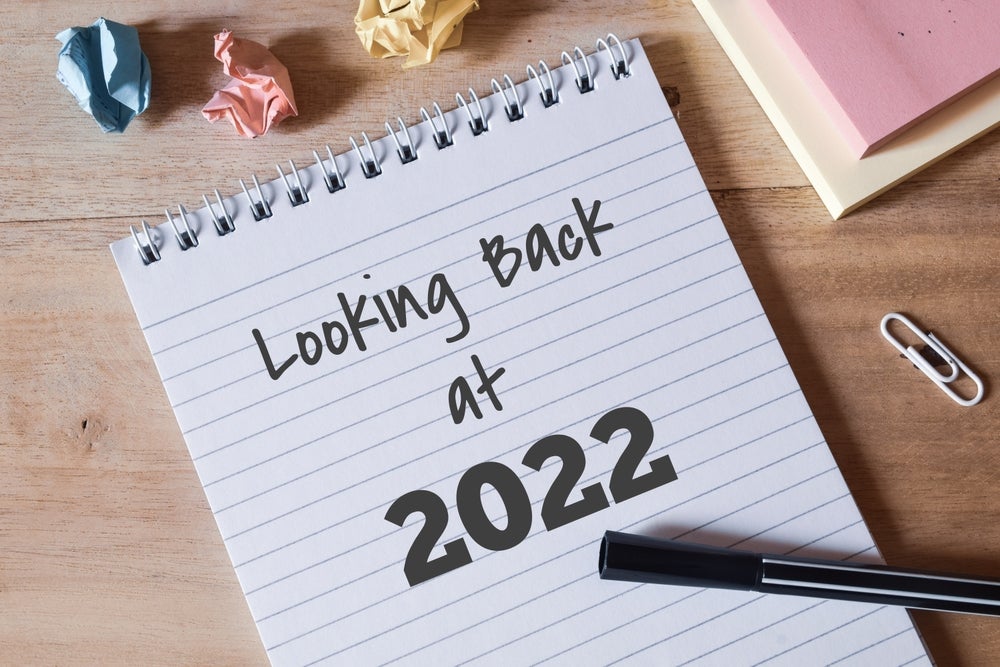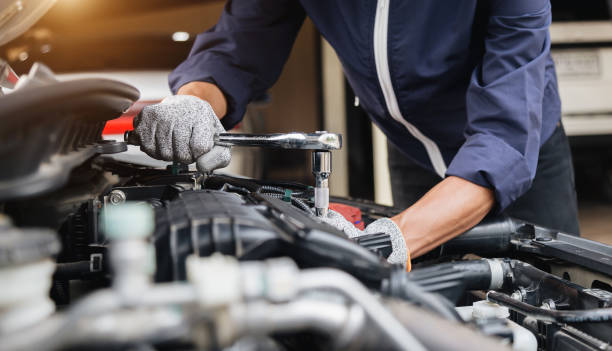
There is no denying that 2022 has been an eventful year. We take a look back at the highs, the lows, and the often sudden switches between the two. Chris Farnell looks back on the year that was.
Brexit and the heights of the pandemic are retreating into the rear-view mirror, and yet, the motor finance market, and the finance market as a whole, has continued to enjoy “interesting times”.
“Even though the spectre of the pandemic barely hangs over us anymore, it has been far from a normal year,” says Toby Poston, Director of Corporate Affairs for the BVRLA. “The last 12 months have been punctuated by political upheaval, a deepening cost of living crisis, and immense supply chain challenges.”
Indeed, the back-to-back global crises, political drama and unpredictable economic behaviour have seen the industry transition into a state of play where crisis is the new normal.
“At ALPHERA we’ve been talking about living and working in a VUCA environment – Volatile, Uncertain, Complex and Ambiguous – for a few years now following the Covid-19 pandemic,” says Alex Royall, UK Director of ALPHERA Financial Services.
The challenges facing the sector include semi-conductor availability, disruptions to vehicle production, the far-reaching impacts of the war in Ukraine and now the cost-of-living concerns for everyone, with inflationary pressures going far beyond initial expectations at the start of the year.
How well do you really know your competitors?
Access the most comprehensive Company Profiles on the market, powered by GlobalData. Save hours of research. Gain competitive edge.

Thank you!
Your download email will arrive shortly
Not ready to buy yet? Download a free sample
We are confident about the unique quality of our Company Profiles. However, we want you to make the most beneficial decision for your business, so we offer a free sample that you can download by submitting the below form
By GlobalData“Now ‘VUCA’ seems to have become simply ‘standard operating procedure’,” Royall points out.
But aside from the relentless news cycle of the last couple of years, 2022 has also seen some high points.
“The publication of the new Consumer Duty principle in July provided clarity and a defined timeline on a topic that the industry has been discussing and debating for a while,” says Royall.
James Hind, Founder and CEO of Carwow, agrees, saying, “Anything to do with making things better for consumers while dispelling negative stereotypes about car finance is good. You have also got the continued momentum building in the electric cars sector.”
The sector has also seen promising end-of-quarter deliveries for the industry as a whole. Salary sacrifice firm, Tusker also points to positive political changes.
“Because we are the specialists in salary sacrifice, the budget announced two or three weeks ago that confirmed benefit-in-kind rates for six years is a very positive step,” points out Kit Wisdom, Operations Director for Tuskerdirect.
And while things have been eventful, the industry has adapted well to its changing environment.
“The industry has adapted and thrived. To do this, the industry has come together to collaborate and share best practices,” says Poston. “This has led to a record year for the BVRLA’s training programme and calendar of events.”
The rough and the smooth
Of course, this is because the industry has had to.
“The industry has faced rising inflation and, with it, rising interest rates,” explains Chris Rowthorn, Director of Motor Sales Operation at MotoNovo Finance.
Of course, perhaps the thing 2022 will be best remembered for in the finance sector is September’s “mini-budget”.
“The cost of our ‘raw materials’ – the cost of money – had been steadily increasing throughout the year but September’s fiscal event caused a significant ‘spike’ which we’re all still dealing with,” says Royall.
Close behind that are supply chain challenges, including ongoing difficulties around vehicle supply.
“Vehicle supply issues have been ever present this year,” concedes Poston, although he remains optimistic. “Instead of causing operations to grind to a halt, they have forced companies to innovate and rethink how they manage their fleets. Vehicles are being held for longer, customer relationships are more flexible, and finance packages are evolving.”
Ringing in the changes
As well as dealing with the travails of the news cycle, the sector has also spent a large part of this year preparing for new massive industry-wide changes. The first of those is the FCA’s new Consumer Duty, due to come into force next year. Deciding on the final form of that Duty has been a huge project.
“It was a year of two halves. Before July, and in collaboration with others, we were working with the FCA to share views and suggestions on how a new regime could work for our sector,” Poston tells us. “Then, when the guidance was published, the industry was proactive and rapid to respond. This has been seen in how we have raised awareness, gained clarity on key elements, and the pace at which necessary changes to processes and systems have been undertaken.”
Indeed, speaking to figures in all areas of the finance sector, the overall response is that the duty is seen as an opportunity.
“The Consumer Duty presents an opportunity for dealer finance to combine what is often an omnichannel financing experience and take even better care of customers, which can help the sector grow,” says Rowthorn of MotoNovo Finance.
While the Duty has been a specific incentive and stimulus for change, Royall argues that it primarily serves to formalise an already existing trend.
“For many of us in the industry it’s part of a wider, progressive shift over the past few years with ‘Treating Customers Fairly’ and ‘Know Your Customer’ - so achieving and being able to demonstrate and evidence ‘Good Consumer Outcomes’ is a natural progression of the journey we’ve been on for a while,” says Royall.
The other big shift the industry has been preparing for is, of course, the shift to electric vehicles.
“We have seen significant increases in battery electric vehicles. In 2021 we were at 80% plus of our business, and are now tracking at over 84%,” says Wisdom. “It is quite a significant shift away from ICE vehicles.”
SMMT – the trade association for the UK motor industry – has said that in Q3, the used car market fell for the second consecutive quarter, declining by 12.2%. However, used battery electric vehicles rose 44.1%, and hybrid electric vehicle sales were up 2.5%. Plug-in hybrid sales, however, fell 5.8%.
“It is all good, but we must recognise that the increase was from a low base, especially for BEVs,” Rowthorn observes.
“While there are some standout performers in the used EV space, it’s still the exception rather than the rule,” Royall agrees.
“Right now, range and arguably charger availability remain consumer concerns; add to that the price premium being charged for EVs in the prevailing market, the increased supply is searching for more than 'early used EV adopter' demand,” Rowthorn continues.
But at the same time, 2022 has seen more models heading towards market, while infrastructure rollout is continuing apace, and public opinion is shifting.
“People care more about the environment, in terms of how they are perceived as well as actual impact,” Hind says.
Situation normal
Volatile, Uncertain, Complex and Ambiguous- VUCA is still the word of the moment, and it has been for a while. But as Royall points out, in this industry it is also an occupational hazard.
“At its heart, this industry is a risk-based business – whether that’s interest rate risk, RV risk or credit risk,” Royall says. “It’s at times like this when there are multi-faceted challenges facing businesses and consumers, that it’s more important than ever to get the fundamental essentials right.”
“The simple thing it goes back to is the vast majority of people in the UK need a car in their day-to-day life,” Hind points out. “It’s a resilient industry.”
Global FDI Annual Report 2022: Volatility set to continue
Motor finance demand high despite rising cost of borrowing






